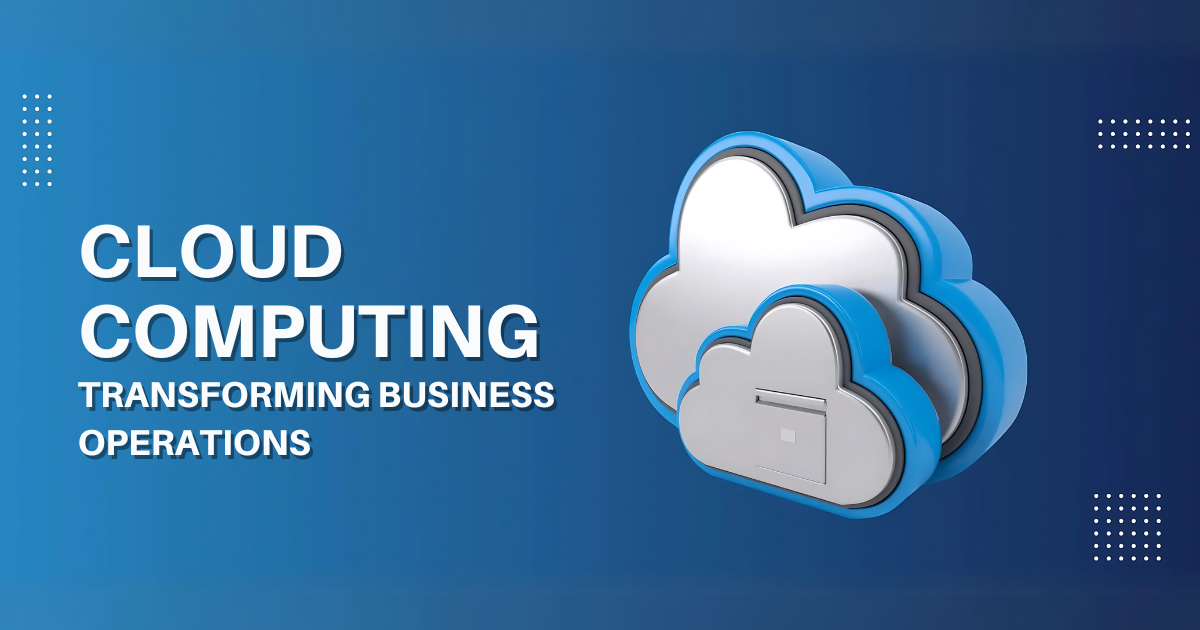The "Cloud" refers to a suite of services provided over the internet, allowing businesses and individuals to store, manage, and process data in remote servers rather than on local hardware. This paradigm shift in computing is underpinned by three primary models: Infrastructure as a Service (IaaS), Platform as a Service (PaaS), and Software as a Service (SaaS). These models provide varying levels of control, from the foundational infrastructure to complete software solutions, making cloud computing an adaptable and scalable resource for diverse business needs.

Impact on Businesses
The Cloud revolutionizes how businesses operate, offering several key advantages:
Scalability: Cloud services enable businesses to scale their operations seamlessly. Companies can adjust their computing resources to match demand without the need for significant upfront capital investments in hardware. This elasticity is particularly advantageous for businesses experiencing fluctuating workloads.
Cost Efficiency: By shifting to a pay-as-you-go model, businesses can reduce costs associated with maintaining and upgrading physical infrastructure. Operational expenses are lowered as cloud providers handle maintenance, updates, and security, allowing companies to focus on their core competencies.
Accessibility and Collaboration: The Cloud enhances accessibility and collaboration. Employees can access data and applications from anywhere with an internet connection, promoting remote work and improving productivity. Collaborative tools and shared workspaces further facilitate teamwork and innovation.
Disaster Recovery and Business Continuity: Cloud services provide robust disaster recovery solutions. Data is often replicated across multiple geographic locations, ensuring that it remains available even in the event of a local hardware failure or natural disaster. This enhances business continuity and reduces downtime.
Significance for Guyana
For a developing nation like Guyana, the Cloud represents a transformative opportunity. Guyana's economic landscape, driven by emerging industries such as oil and gas, agriculture, and tourism, can significantly benefit from cloud adoption. The ability to leverage cloud technologies can propel Guyanese businesses into global markets by enhancing their competitiveness and operational efficiency. Economic Growth: Cloud computing can stimulate economic growth by enabling small and medium-sized enterprises (SMEs) to access advanced technologies that were previously out of reach due to cost constraints. This democratization of technology can foster innovation and entrepreneurship.
Education and Skills Development: The Cloud can play a pivotal role in education by providing students and educators with access to vast resources and tools. Online learning platforms, virtual laboratories, and collaborative projects can enhance the quality of education and prepare the workforce for the digital economy. Public Services and Governance: The adoption of cloud technologies in public services can improve governance and service delivery. E-government initiatives, powered by the Cloud, can streamline administrative processes, enhance transparency, and provide citizens with easier access to essential services.
Data Security Implications
While the Cloud offers numerous benefits, data security remains a critical concern. Businesses and governments must ensure that sensitive information is protected against cyber threats and unauthorized access.
Encryption: Cloud service providers implement advanced encryption techniques to secure data both in transit and at rest. This ensures that even if data is intercepted, it remains unreadable without the appropriate decryption keys.
Compliance and Regulations: Adhering to data protection regulations is crucial. Cloud providers often comply with international standards such as GDPR (General Data Protection Regulation) and ISO/IEC 27001, providing a robust data security and privacy framework.
Access Controls and Monitoring: Implementing stringent access controls and continuous monitoring helps protect data. Multi-factor authentication, role-based access, and real-time monitoring detect and prevent unauthorized access and breaches.
Shared Responsibility Model: It is important to understand that data security in the Cloud follows a shared responsibility model. While cloud providers secure the infrastructure, businesses must ensure that they implement appropriate security measures for their applications and data.
Conclusion
The Cloud represents a significant advancement in technology, offering scalable, cost-effective, and accessible solutions for businesses. For Guyana, embracing cloud computing can drive economic growth, enhance education, and improve public services. However, it is imperative to address data security challenges to realize the potential of the Cloud fully. By adopting robust security measures and complying with regulatory standards, Guyana can harness the power of the Cloud to foster innovation and development in the digital age.